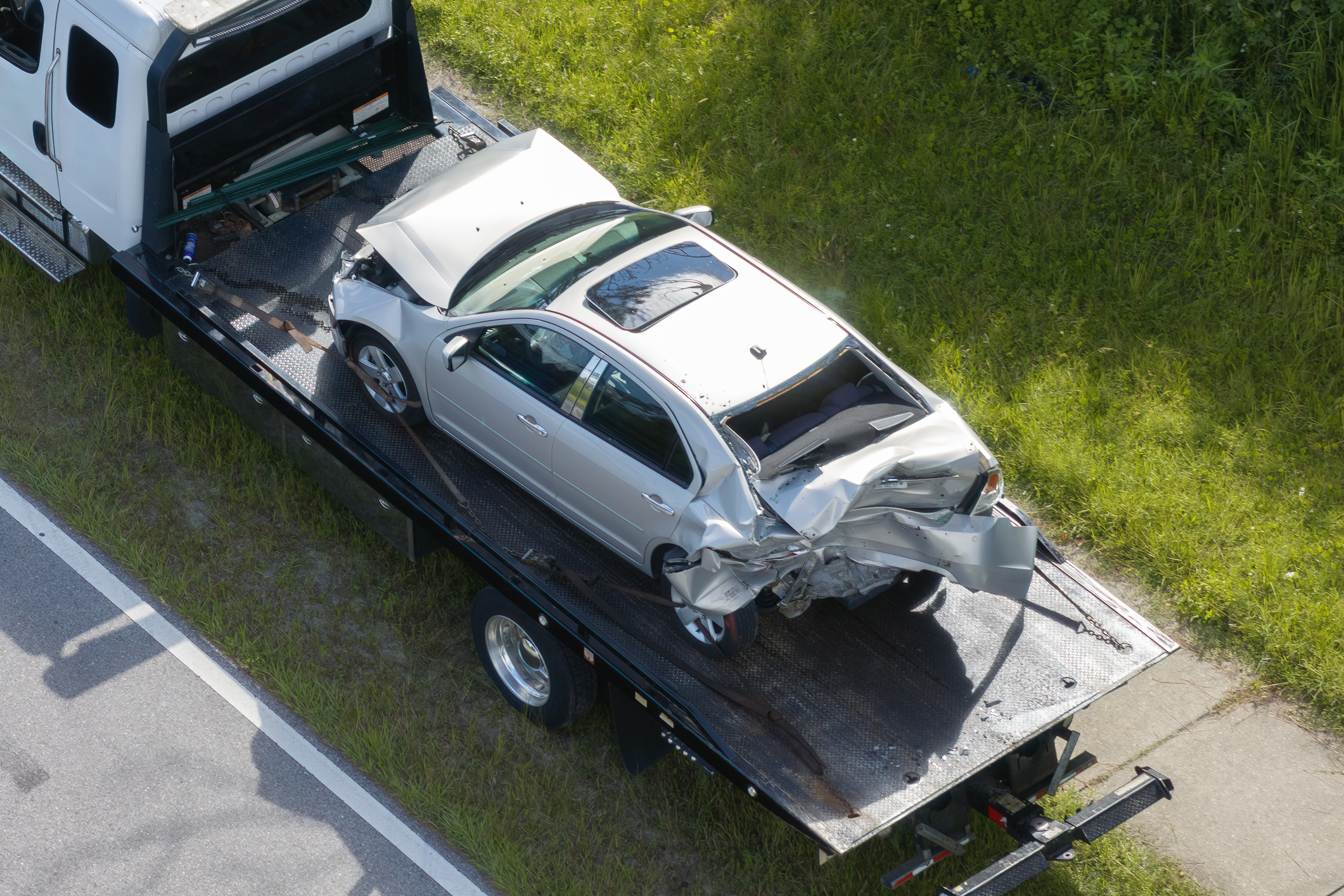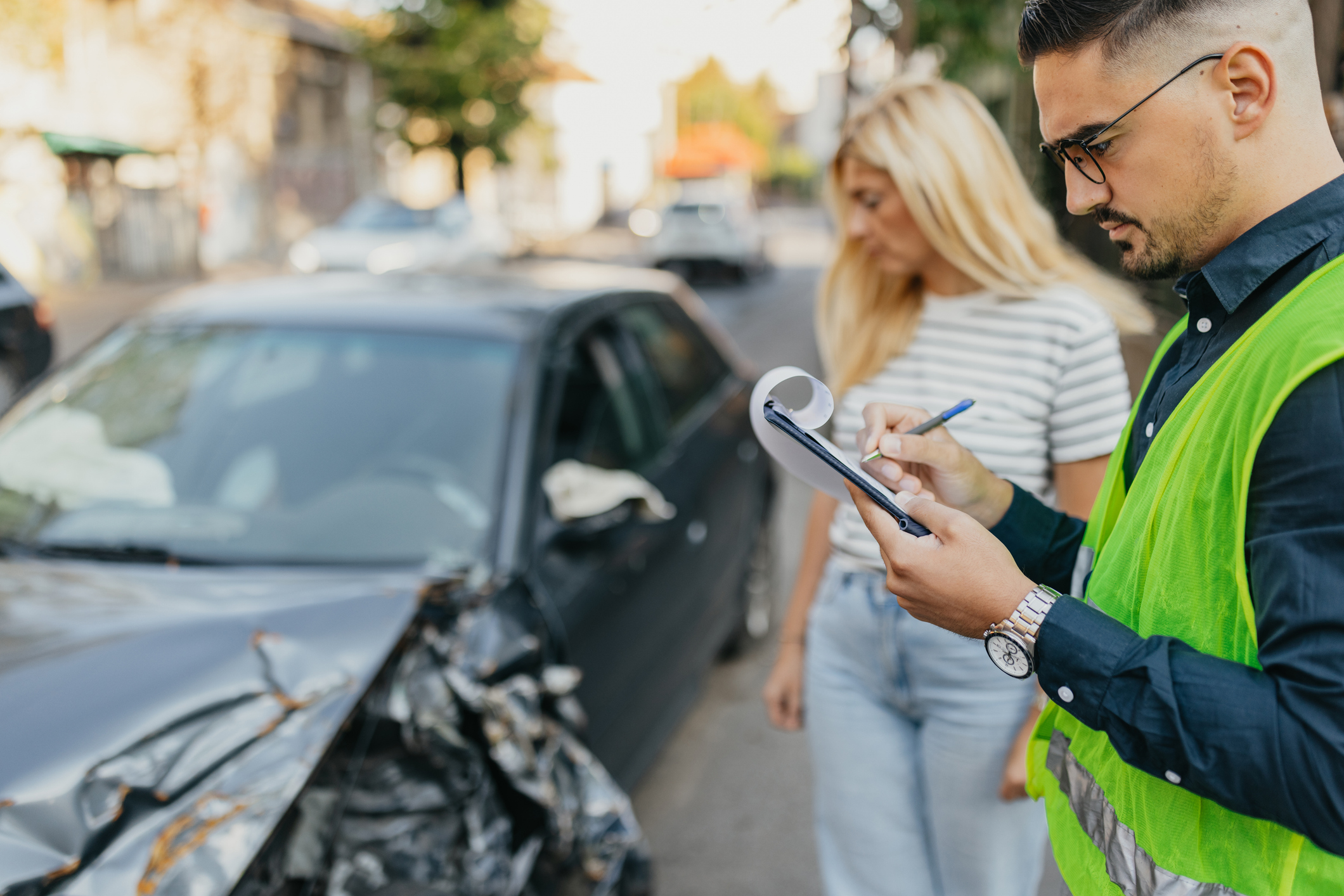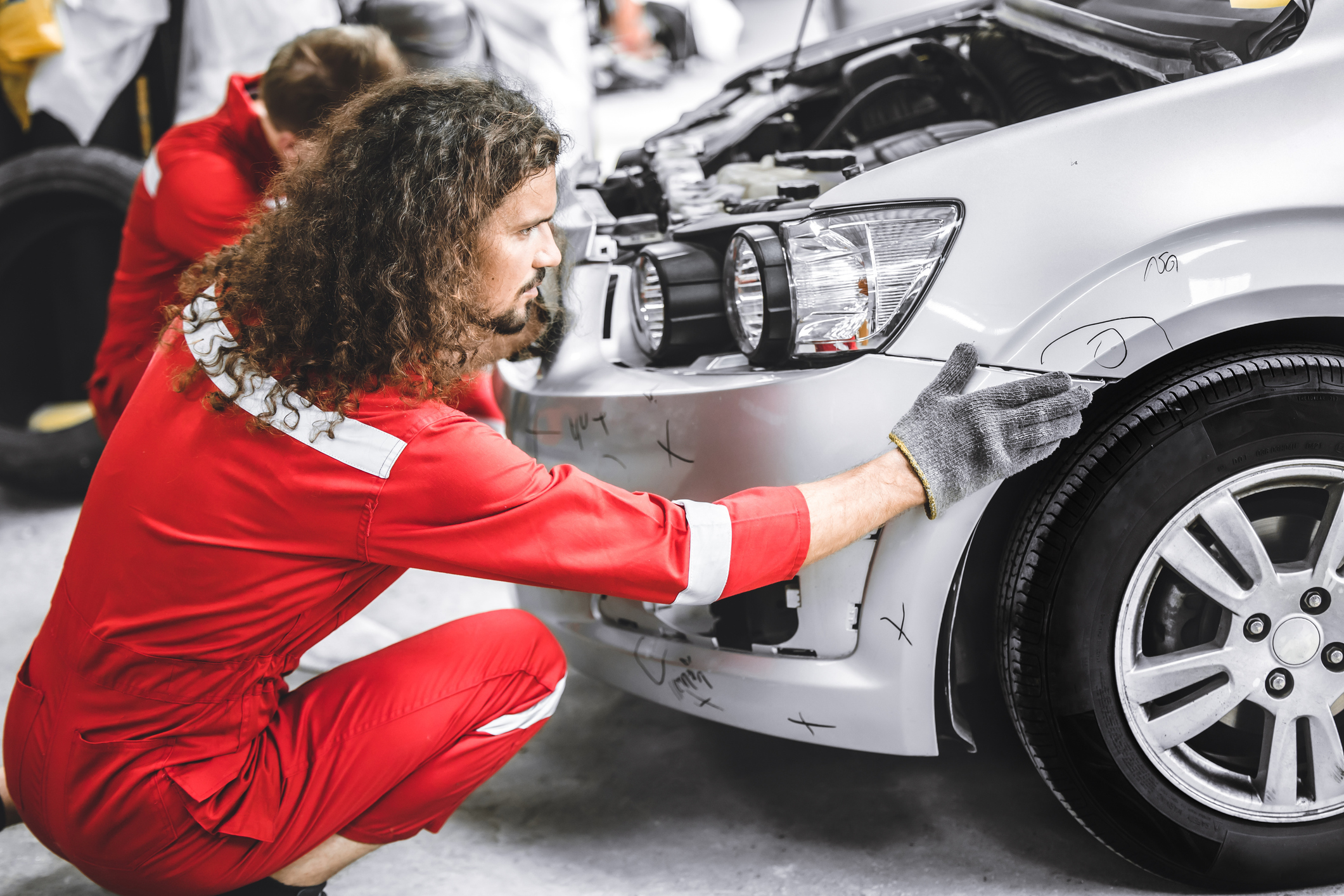Help! My Car Was Totaled. Should I Repair and Keep Driving It or Buy a New One?
Does it ever make sense to keep a totaled car? Maybe, but you need to consider these factors first.

Profit and prosper with the best of Kiplinger's advice on investing, taxes, retirement, personal finance and much more. Delivered daily. Enter your email in the box and click Sign Me Up.
You are now subscribed
Your newsletter sign-up was successful
Want to add more newsletters?

Delivered daily
Kiplinger Today
Profit and prosper with the best of Kiplinger's advice on investing, taxes, retirement, personal finance and much more delivered daily. Smart money moves start here.

Sent five days a week
Kiplinger A Step Ahead
Get practical help to make better financial decisions in your everyday life, from spending to savings on top deals.

Delivered daily
Kiplinger Closing Bell
Get today's biggest financial and investing headlines delivered to your inbox every day the U.S. stock market is open.

Sent twice a week
Kiplinger Adviser Intel
Financial pros across the country share best practices and fresh tactics to preserve and grow your wealth.

Delivered weekly
Kiplinger Tax Tips
Trim your federal and state tax bills with practical tax-planning and tax-cutting strategies.

Sent twice a week
Kiplinger Retirement Tips
Your twice-a-week guide to planning and enjoying a financially secure and richly rewarding retirement

Sent bimonthly.
Kiplinger Adviser Angle
Insights for advisers, wealth managers and other financial professionals.

Sent twice a week
Kiplinger Investing Weekly
Your twice-a-week roundup of promising stocks, funds, companies and industries you should consider, ones you should avoid, and why.

Sent weekly for six weeks
Kiplinger Invest for Retirement
Your step-by-step six-part series on how to invest for retirement, from devising a successful strategy to exactly which investments to choose.
Question: My car was totaled in an accident. Should I repair and keep driving it or buy a new one?
Answer: In many cases, buying a car after your current car is declared a total loss is the easier, safer and more financially sound option. But there are definitely scenarios where keeping your totaled car makes sense. It's not easy to find information out there about when and why you might be better off keeping a car after it's been declared a total loss.
So, let's break down the pros and cons of each option and some of the math you can do to figure out what your best move is after getting in an accident and having a car insurance company declare your car a total loss.
From just $107.88 $24.99 for Kiplinger Personal Finance
Become a smarter, better informed investor. Subscribe from just $107.88 $24.99, plus get up to 4 Special Issues

Sign up for Kiplinger’s Free Newsletters
Profit and prosper with the best of expert advice on investing, taxes, retirement, personal finance and more - straight to your e-mail.
Profit and prosper with the best of expert advice - straight to your e-mail.
What happens when a car is totaled?

After a car accident, the insurance company will assess the damage and calculate an estimated repair cost. At the same time, it will determine the fair market value of your car immediately before the crash — essentially, what it would have sold for based on its mileage and condition.
If the estimated repair costs exceed the fair market value or, in some cases, exceed 75% of the fair market value, the insurance company will declare your car a total loss. Instead of paying for the repairs, then, the insurer will pay that estimated fair market value.
If the car is fully paid off, you'll get a check for that fair market value minus your car insurance deductible and the insurance company will keep the car.
If you're still making payments on it, your loan provider will get that check and, if there's anything left after applying it to your loan balance, you'll get the leftover – and the insurance company keeps the car.
If you have gap insurance, that coverage will pay off the remaining balance of the loan, allowing you to get the full payout from the insurance company.
If you want to keep your car after it’s declared a total loss, you’ll need to notify the insurance company and, if applicable, your lender. Once the loan is paid off, you typically have the option to keep the vehicle.
However, the insurer will deduct the salvage value — the estimated amount the car could bring at a salvage yard — from your payout.
Can you keep your car after it's been totaled?

If you own the car or are able to pay off the loan with the insurance payout, you can probably keep the car after the insurance company declares it a total loss. But, just because you can doesn't mean you necessarily should. The first thing to consider is that your car will likely be given a salvage title.
A salvage title is a way of disclosing to any future buyers that this car has been in a severe enough accident to have been declared a total loss. The laws around when they are issued and what restrictions they come with vary by state, but generally, you will need to have the car inspected and deemed roadworthy before you can drive it again.
In some states, getting it repaired and deemed roadworthy again will result in your salvage title becoming a "rebuilt title" or a "rebuilt salvage title." This means that it had been declared a total loss, but has since been repaired and is now legal to drive.
For car insurance purposes, getting coverage with a salvage or rebuilt title is tricky. Many insurers will only offer the minimum amount of coverage required by your state. Others may refuse to insure it altogether.
In some cases, you might be able to get full coverage on a rebuilt title. But note that the "fair market value" is pretty low once it's been declared a total loss, so it might make more sense to drop to minimum coverage car insurance anyway.
That lower fair market value will also matter when it comes time to resell. Many dealerships won't accept a car with a salvage or rebuilt title for trade-in so you'll likely have to do a private sale.
When you do, don't expect much. It's risky to buy a car that's been declared a total loss because the next buyer doesn't know how thoroughly it was repaired, and they'll also face the same issues with getting car insurance you face now.
Despite the serious drawbacks to driving a totaled car, there are some benefits:
- In some cases, the cost of repairs can be substantially less than the cost of a new or reliable used car, especially as the recent auto tariffs drive up car prices.
- While you may only be able to get minimum car insurance coverage on your car after it was declared a total loss, that minimal coverage can cost less, resulting in thousands of dollars saved per year depending on a variety of factors. Between the savings on insurance premiums and the savings on putting off buying a new car, you'd be able to put away a good nest egg over the next few years to put toward your next car when you are ready to upgrade.
- If the alternative is buying a used car, you might have greater peace of mind putting that insurance payout toward repairs instead. Since you already own this car, you know its history and you can make sure that the repairs done to it now are done properly and thoroughly.
These are all important factors to consider when deciding whether or not it's worth keeping your totaled car.
When does keeping a totaled car make sense?

For all the issues discussed above, buying a new (or reliable used) car is often less complicated and less risky than repairing your totaled car to keep driving it. Still, there are a few exceptions that might make it worth keeping this car (though not necessarily to keep driving it):
- You have an older car with a low fair market value. If the fair market value is so low that even minor cosmetic damage (like a fender bender) could be enough to declare it a total loss, it might still be roadworthy. In that scenario, taking the payout and then repairing it will almost definitely be cheaper than buying something new or even used.
- It's a vintage or rare model that you can restore (or sell for parts). If you're a car enthusiast, having that classic car totaled is a painful loss. But taking the cash and keeping the car is probably the best option here. Depending on the severity of the damage, you can either restore this car or use the undamaged parts to restore a similar model.
- You want to donate it to charity as a tax write-off. Of course, you won't get as much of a tax deduction as you would donating a car that wasn't totaled, but this can add to the cash payout you got from your insurer.
How to decide whether to keep your totaled car or buy a new one
Assuming you're deciding between buying a car or repairing this totaled car to drive it, here are some tips to help you decide:
Compare the cost of repairs with the cost of buying.
Do a little online shopping for new or used cars that you would actually want to buy. If you know your car is going to be declared a total loss, you know roughly what the repair costs are.
They're at or near the fair market value of your car. If you haven't heard back from insurance yet, you can use Kelley Blue Book or Carfax to estimate your fair market value.
If the cost of the car you'd be willing to buy is substantially higher than repairing the one you have, you might opt to do the repairs.
According to Kelley Blue Book, the average cost of a new car is $48,841, while a used car averages $25,527.
Depending on how badly damaged your car was, it's possible that the cost of even fairly substantial repairs will still work out to less than the cost of buying a reliable car. That's especially true for more expensive makes and models.
Use the tool below to compare some of today's best auto insurance offers, powered by Bankrate:
Factor in your time horizon
Along with the dollar for dollar comparison of buying versus repairing, consider your time horizon. How much longer were you planning to drive that car before it was totaled?
If you were going to trade it in within the next year or two anyway, you might be better off putting the insurance payout toward a new car now. The resale value of your car after a total loss is going to be a lot lower than its fair market value before the accident. So, repairing it now and selling it in a year or two will result in a net loss.
However, if you were still planning to get many more years out of this car, repairing it might make sense if the repair costs are lower than what you'd spend on replacing it.
The bottom line: Should you keep it or move on?
For a lot of drivers, buying a car after a total loss is the easier and more financially sound option.
But if your car is older, rare or holds sentimental value for you, keeping it may be a good option. Just make sure you do the math and understand your state's requirements for driving a car with a salvage title.
Related content
Profit and prosper with the best of Kiplinger's advice on investing, taxes, retirement, personal finance and much more. Delivered daily. Enter your email in the box and click Sign Me Up.

Rachael Green is a personal finance eCommerce writer specializing in insurance, travel, and credit cards. Before joining Kiplinger in 2025, she wrote blogs and whitepapers for financial advisors and reported on everything from the latest business news and investing trends to the best shopping deals. Her bylines have appeared in Benzinga, CBS News, Travel + Leisure, Bustle, and numerous other publications. A former digital nomad, Rachael lived in Lund, Vienna, and New York before settling down in Atlanta. She’s eager to share her tips for finding the best travel deals and navigating the logistics of managing money while living abroad. When she’s not researching the latest insurance trends or sharing the best credit card reward hacks, Rachael can be found traveling or working in her garden.
-
 Quiz: Do You Know How to Avoid the "Medigap Trap?"
Quiz: Do You Know How to Avoid the "Medigap Trap?"Quiz Test your basic knowledge of the "Medigap Trap" in our quick quiz.
-
 5 Top Tax-Efficient Mutual Funds for Smarter Investing
5 Top Tax-Efficient Mutual Funds for Smarter InvestingMutual funds are many things, but "tax-friendly" usually isn't one of them. These are the exceptions.
-
 AI Sparks Existential Crisis for Software Stocks
AI Sparks Existential Crisis for Software StocksThe Kiplinger Letter Fears that SaaS subscription software could be rendered obsolete by artificial intelligence make investors jittery.
-
 One of the Most Powerful Wealth-Building Moves a Woman Can Make: A Midcareer Pivot
One of the Most Powerful Wealth-Building Moves a Woman Can Make: A Midcareer PivotIf it feels like you can't sustain what you're doing for the next 20 years, it's time for an honest look at what's draining you and what energizes you.
-
 I'm a Wealth Adviser Obsessed With Mahjong: Here Are 8 Ways It Can Teach Us How to Manage Our Money
I'm a Wealth Adviser Obsessed With Mahjong: Here Are 8 Ways It Can Teach Us How to Manage Our MoneyThis increasingly popular Chinese game can teach us not only how to help manage our money but also how important it is to connect with other people.
-
 Looking for a Financial Book That Won't Put Your Young Adult to Sleep? This One Makes 'Cents'
Looking for a Financial Book That Won't Put Your Young Adult to Sleep? This One Makes 'Cents'"Wealth Your Way" by Cosmo DeStefano offers a highly accessible guide for young adults and their parents on building wealth through simple, consistent habits.
-
 My Spouse and I Are Saving Money for a Down Payment on a House. Which Savings Account is the Best Way to Reach Our Goal?
My Spouse and I Are Saving Money for a Down Payment on a House. Which Savings Account is the Best Way to Reach Our Goal?Learn how timing matters when it comes to choosing the right account.
-
 We're 78 and Want to Use Our 2026 RMD to Treat Our Kids and Grandkids to a Vacation. How Should We Approach This?
We're 78 and Want to Use Our 2026 RMD to Treat Our Kids and Grandkids to a Vacation. How Should We Approach This?An extended family vacation can be a fun and bonding experience if planned well. Here are tips from travel experts.
-
 My First $1 Million: Retired From Real Estate, 75, San Francisco
My First $1 Million: Retired From Real Estate, 75, San FranciscoEver wonder how someone who's made a million dollars or more did it? Kiplinger's My First $1 Million series uncovers the answers.
-
 To Love, Honor and Make Financial Decisions as Equal Partners
To Love, Honor and Make Financial Decisions as Equal PartnersEnsuring both partners are engaged in financial decisions isn't just about fairness — it's a risk-management strategy that protects against costly crises.
-
 Top 5 Career Lessons From the 2026 Winter Olympics (So Far)
Top 5 Career Lessons From the 2026 Winter Olympics (So Far)Five lessons to learn from the 2026 Winter Olympics for your career and finances.